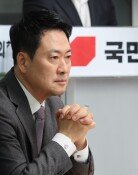[Editorial] Drainage of Foreign Capital
[Editorial] Drainage of Foreign Capital
Posted August. 01, 2008 03:29,
The government was rejoiced at the pouring investment inquiries from foreign corporations in the first few months of the Lee Myung-bak administration. They even called it MB effect by naming it after the presidents initials. There were high expectations that President Lees business-friendly policies would increase foreign direct investment (FDI) and create many quality jobs. In the first six months of this year, FDI made in Korea to establish a branch or acquire a stake of more than 10 percent in a corporation was merely $2 billion, while the outflow of foreign capital from Korea surpassed $3 billion. Net investment was minus $886 million, the first red since the National Statistical Office began compiling the data in 1980.
President Lee would wield huge influence when it comes to attracting foreign investment. The people and businessmen used to give a big hand for his business-friendly policies, which were seen from business diplomacy and the removal of power poles. According to a survey, some 72 percent of foreign corporations in Korea predicted that FDI would increase. However, despite all those optimistic forecasts, the result has turned up to be bitterly disappointing. It should be seen as a sign alarming that the Korean economy is in serious trouble.
The Bank of Korea argues that the drainage of foreign capital is an exaggeration, considering that LG Philips LCD and Hi-Mart sold away a large amount of their shares. However, it is a short-sighted view. Koreans direct investment abroad in the first two quarters of the year was $6.8 billion, up 36 percent compared to the same period last year. Coupled with uncertainties in the international financial market, net foreign investment in stocks reached minus $22.1 billion. This is how unattractive Korea is to foreign investors.
However, if we carefully examine what efforts we have made so far to attract FDI, we may even end up thanking foreign investors for maintaining the current level of capital here in Korea. Above all, soaring labor expenses over the past several years and internationally notorious militant labor unions of Korea are chiefly responsible for making the nation a place to avoid making investment. Major countries in the world are busy creating new growth engines based on their infrastructure, whereas Korea is chanting the empty slogan of Northeast Asias Hub without easing regulations in the Seoul metropolitan areas. Korea promises cooperation when they try to attract foreign investment. But, once investment is made, all they do is imposing regulations, a European businessman said. So how can we say that Lee is any better than his predecessor Roh Moo-hyun in attracting foreign investment?
FDI results are calculated in accordance to a set of international standards to evaluate the overall business environment. Korea, which ranked 16th out of the 30 OECD countries in 2004, plunged to the 29th place last year. Without tackling this problem, the government will neither be able to revive the economy, nor create quality jobs.




![“잠만 자면 입이 바싹바싹”…잠들기 전에 이것 체크해야 [알쓸톡]](https://dimg.donga.com/c/138/175/90/1/wps/NEWS/IMAGE/2026/02/23/133404749.3.jpg)


